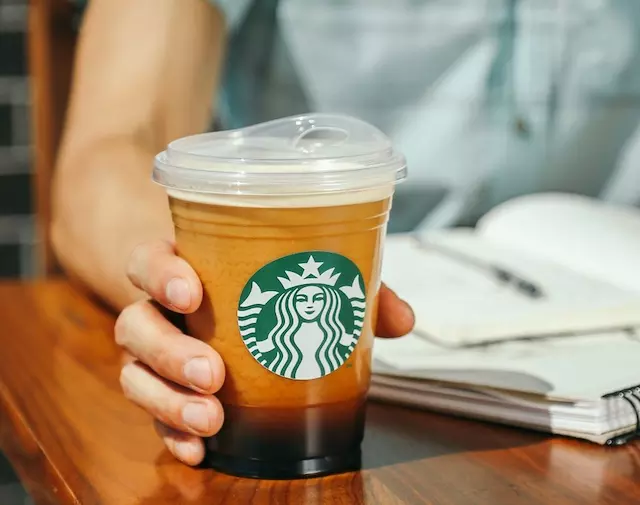Starbucks promises to abolish disposable straws in all its coffee shops by 2020

Professional coffee knowledge exchange more coffee bean information please follow the coffee workshop (Wechat official account cafe_style)
All Starbucks stores will stop using disposable plastic straws by the end of 2020, US coffee chain Starbucks announced Monday, the Yomiuri Shimbun reported. Starbucks also called on people to stop using plastic straws because they can pollute the ocean.
Even if it stops using disposable plastic straws, Starbucks will introduce straight drink cup lids and paper straws instead. After use, it can also be recycled into fertilizer for use.
The initiative will begin this fall in the western United States, Seattle, Washington, where Starbucks is located, and Vancouver, Canada, and will be extended to all stores in the United States and Canada in 2019. Stores in other areas will completely stop using disposable plastic straws by the end of 2020.
When you walk into Starbucks in 2020, you probably won't see any plastic straws.
The coffee giant announced on July 9 that it would phase out disposable plastic straws in global stores within two years and replace them with straws made of paper or other alternative materials. and a special cup lid without a straw hole, which has been used in nitrogen drinks in the United States, Canada, China, Japan, Singapore, Thailand and Vietnam.
In addition, Starbucks announced a $10 million investment in research and development of beverage cups that can be fully recycled, decomposed and applied around the world.
Cold drinks usually use straws the most frequently, and cold drinks account for more than 50% of Starbucks beverage sales. Eliminating the use of plastic straws is equivalent to subtracting the consumption of more than 1 billion plastic straws in its nearly 30, 000 stores each year.
▲ suction cup lid without suction hole (photo source: Starbucks)
But Alex Fraser, vice president of operations at catering consultancy The Fifteen Group, believes that the extra costs of using paper straws may be passed on to consumers.
Laser says plastic straws cost about 1 cent each, while paper straws could increase business costs 10 to 15 times. Unless there are more and more choices of environmentally friendly products, the cost can be reduced.
Recently, the global demand for plastic reduction is getting louder and louder, and governments and enterprises have responded one after another.
A week ago (July 1), Seattle, the birthplace of Starbucks, became the first city in the United States to ban the use of plastic straws, cutlery and mixing bars. New York and San Francisco are also considering following suit, with violators facing a $250 fine. Next year, laws banning plastic straws and mixing rods will also take effect in the UK and Ireland.
At the beginning of this year, Britain also proposed in its environmental protection plan for the next 25 years that supermarkets should set up "plastic-free zones" for customers to carry their own containers of goods, and that all stores across the country should not provide free plastic bags. The goal is to completely eliminate avoidable plastic waste by 2042.
In February, Taiwan also announced a ban on the use of plastic straws in stores from 2019.
For food companies, Dunkin' Donuts announced in February that it would phase out all polystyrene (commonly known as Polystyrene) beverage cups by 2020. McDonald's plans to switch to paper straws in 1300 stores in the UK and Ireland by next year, while its soda cups will be made of recyclable or environmentally friendly materials around the world.
This is not an easy task for restaurant chains, which have tens of thousands of stores around the world and serve millions of customers every day, making it costly to phase out plastic products altogether.
At an investor meeting in April, McDonald's shareholders voted down a proposal to ban plastic straws at McDonald's in the United States.
The board said the resources required to adopt the proposal would affect the environmental initiatives promised by other McDonald's, and that they were looking for plastic straw alternatives that were both cost-effective and practical.
Some opponents of the ban argue that it should be more important to find alternatives.
At present, the most popular paper straw is generally not strong enough and easy to break. There is an Aardvark straw straw on the market, the production material reaches the FDA food grade standard, can be biodegradable, but the price is high, more than ten times that of the ordinary straw.
In the past two years, many Taiwanese businesses have begun to promote stainless steel straws or glass straws, but the former is hard and the latter is easy to break, so they are not suitable for young children.
At the same time, some patients who have difficulty eating due to neuromuscular damage or other reasons also need plastic straws to help them eat. A total ban on plastic straws may make their lives more inconvenient.
Source: Chen Siyan, Curiosity Daily
Important Notice :
前街咖啡 FrontStreet Coffee has moved to new addredd:
FrontStreet Coffee Address: 315,Donghua East Road,GuangZhou
Tel:020 38364473
- Prev

Just now, Schultz spoiler Starbucks China will soon form an alliance with Alibaba "ele.me"
Professional coffee knowledge exchange more coffee bean information Please follow the coffee workshop (Wechat official account cafe_style) recently, Starbucks father Howard Schultz (Howard Schultz) suddenly appeared in Shanghai, came to China to bid farewell to Starbucks China team. During the itinerary, after arriving in Shanghai, the first stop, he will also visit Beijing. Schultz will form an alliance with Jack Ma according to the United States
- Next

What is Blue Bottle Coffee? A Blue Bottle Coffee Start-up Story from a Cart
Professional coffee knowledge exchange More coffee bean information Please pay attention to coffee workshop (Weixin Official Accounts cafe_style) Legend has it that at the end of the 17th century, Turkish troops swept through most of Eastern and Central Europe and arrived in Vienna in 1683. The Viennese, desperate for an apostle, crossed the Turkish line to the Polish army nearby and spoke Turkish and Arabic.
Related
- What brand of black coffee is the most authentic and delicious? what are the characteristics of the flavor of the authentic Rose Summer Black Coffee?
- Introduction to the principle and characteristics of the correct use of mocha pot A detailed course of mocha pot brewing coffee is described in five steps.
- Which is better, decaf or regular coffee? how is decaf made?
- How much is a bag of four cat coffee?
- How about four Cat Coffee or Nestle Coffee? why is it a cheap scam?
- Which is better, Yunnan four Cats Coffee or Nestle Coffee? How about cat coffee? is it a fake scam? why is it so cheap?
- How about Cat Coffee? what grade is a hoax? which instant coffee tastes better, four Cat Coffee, Nestle Coffee or G7 coffee?
- Process flow chart of coffee making-Starbucks coffee making process what coffee tastes good at Starbucks
- The top ten best coffee beans in the world Rose summer coffee or Tanzanian coffee tastes good
- Yunnan four cat coffee is good to drink?_four cat coffee is a big brand? four cat blue mountain coffee is fake?

